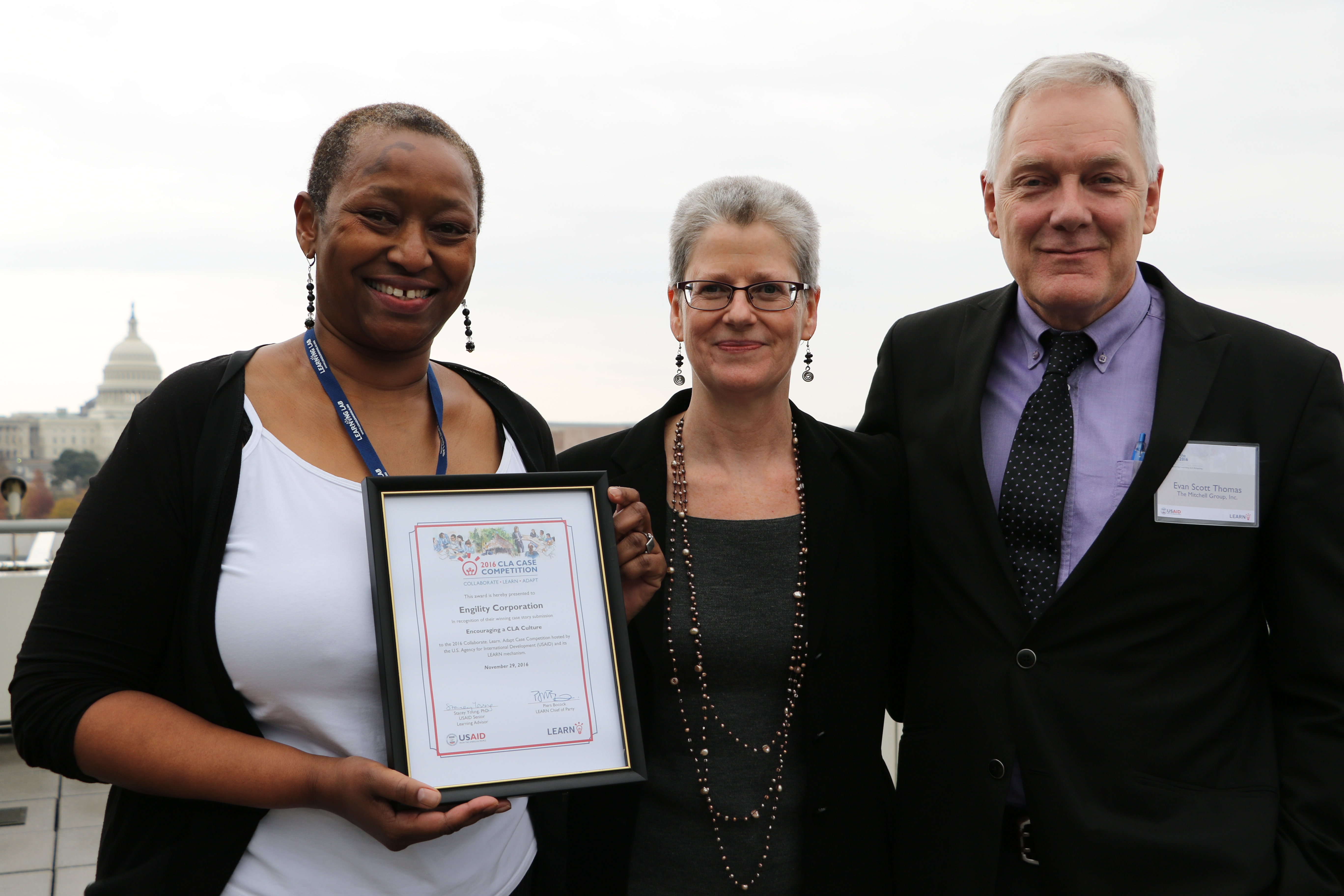Community Contribution
Encouraging a CLA Culture
Resources
Published
Organization(s)
Description
 Rural areas of the African Sahel suffer from many hardships that dampen community resilience, leaving households prone to socioeconomic shocks. USAID’s Resilience in the Sahel Enhanced (RISE) initiative includes 28 activities in Niger and Burkina Faso. Through the five-year Sahel Resilience Learning (SAREL) activity, we provide monitoring, evaluation, collaboration, and learning support to RISE, working to strengthen the capacity of RISE and other key stakeholders to engage in adaptive, evidence-based learning.
Rural areas of the African Sahel suffer from many hardships that dampen community resilience, leaving households prone to socioeconomic shocks. USAID’s Resilience in the Sahel Enhanced (RISE) initiative includes 28 activities in Niger and Burkina Faso. Through the five-year Sahel Resilience Learning (SAREL) activity, we provide monitoring, evaluation, collaboration, and learning support to RISE, working to strengthen the capacity of RISE and other key stakeholders to engage in adaptive, evidence-based learning.
CLA Approach
- Relationships & Networks: Taking a participatory approach to co-designing collaborating, learning, and adapting (CLA) activities, we consulted with implementing partners, the host governments’ resilience coordinating bodies, and USAID to gain a deeper understanding of five areas related to RISE and the local context. Based on these consultations, we organized CLA forums, workshops, training sessions, and online discussions that fit the demands for learning, programmatic adaptation, and collaborative action.
- Openness: As the partners had more opportunities for exchange, the more open they became about their successes and challenges and the more they elicited feedback from other implementing partners and the government.
- Knowledge Management: We have developed templates to capture and codify the resilience activities and good practices so that chiefs of party, component team leaders, and specialists can use them as job aids when they wish to review and adapt their design and activities.
Lessons Learned
- Building a culture of intentional and systematic CLA takes a great deal of time and resources. Even with all of the available technology, building the trust for a CLA culture demands significant face-to-face interaction.
- Ensuring that there is trust and a clear business case. Once that is established, activity teams and stakeholders will put their own resources toward knowledge exchange and collaborative activities.
Outcomes
- SAREL has helped RISE partners discover and begin to explore collaborative ventures that have the potential to improve the quality of interventions and enable scale-up.
- Implementing partners that do not have a budget for collaborative activities are now allocating funds and personnel time for collaborating with one another.



